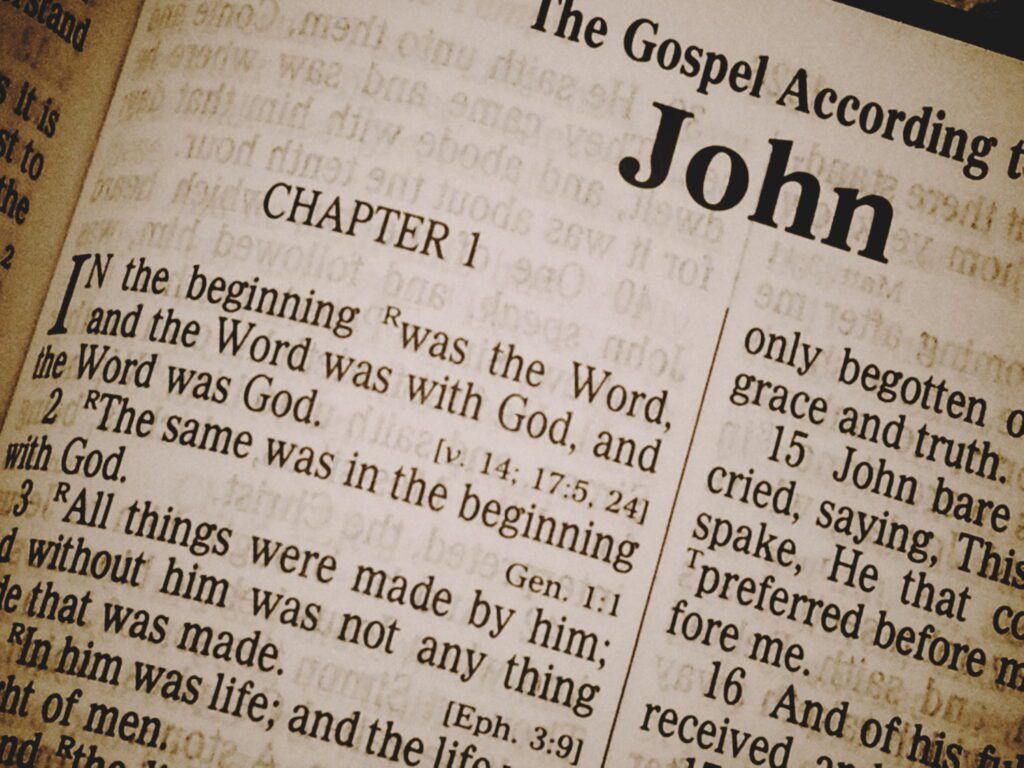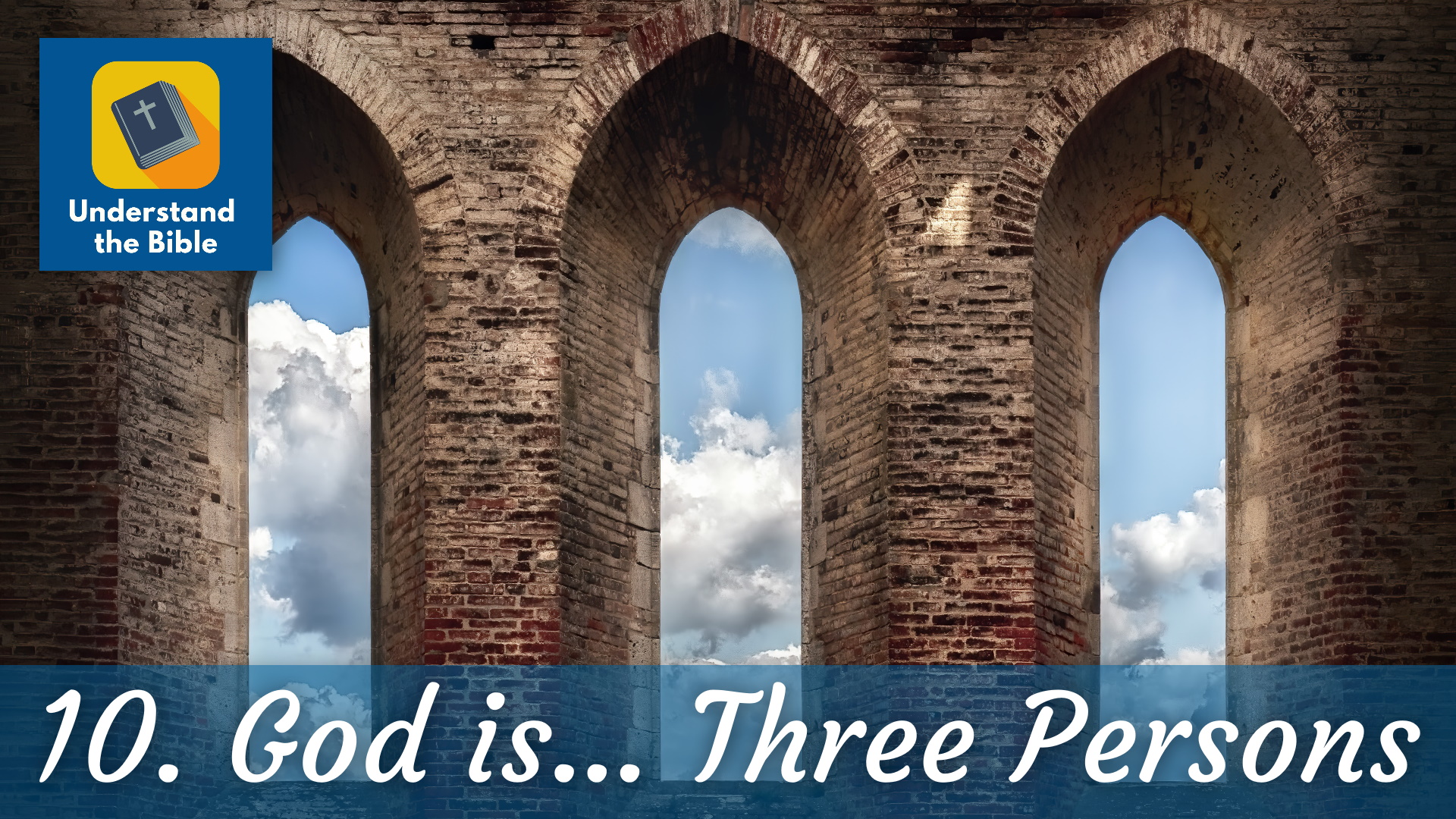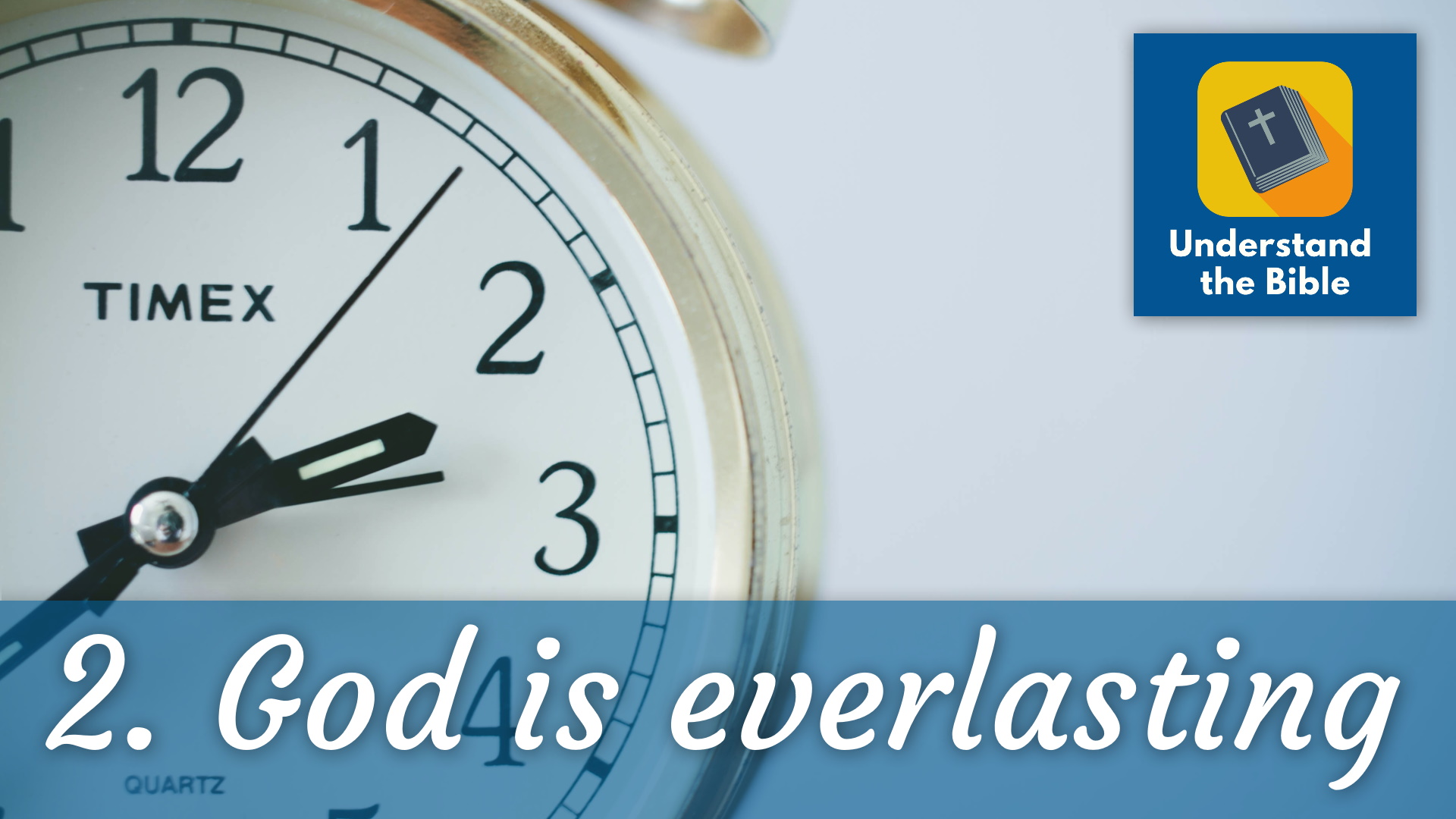In this final part of our Get to know God series, we turn to thinking about how God is three persons – Father, Son and Holy Spirit. This is traditionally known as the doctrine of the Trinity. Sometimes people can have the idea that the Trinity is too difficult to think about, or it doesn’t really make much difference to everyday life. But, as theologian D.B. Knox said: “The doctrine of the Trinity is the foundation of the Christian religion”. It’s essential to our Christian lives: we experience God as Trinity. It matters that we don’t just think of ‘God’, but think in terms of the Father, Son and Spirit.
Obviously there are many books which have been written about this topic (and I’ll link to some of them below). We won’t be able to deal with the whole doctrine of the Trinity in one session! But I hope this will at least make a start so you want to continue learning yourself.
Let’s start by thinking about what the Bible says, before we go on to look at why it matters for us day-by-day.
What does the Bible say about the Trinity?
The doctrine of the Trinity is somewhat veiled in the Old Testament. That is, it’s there if you know what you’re looking for – there are some passages which don’t make sense any other way. And yet, we don’t really get the full picture until the New Testament. Because we don’t have much time here, we’ll concentrate on the New Testament for the moment.
John 1:1-18 – Prologue to John’s Gospel

The prologue to John’s Gospel is one of the most famous passages in the Bible. Sometimes it’s read at Christmas carol services. But how many times have you thought about what it says about the Trinity? Let’s begin our brief exploration of the Trinity in the Bible here.
The first thing to say is that significant teaching about the Trinity comes within a gospel. The gospels tell the story of what Jesus came to do, to save us. The first 500 years or so of the church was where the doctrine of the Trinity was fleshed out, as theologians wrestled with the question: who is Jesus? As all Christians need to believe in Jesus, we also need to understand who he is. Let’s look into it a bit further.
- 1:1 “In the beginning…”: there are echoes here of Genesis 1:1 which we thought about last time. So understanding who Jesus is involves going back to the very beginning.
- “was the Word” – this can only be understood as referring to Jesus. Why is Jesus referred to as the ‘Word’? Have a look back at Genesis 1 and see how God creates. “God said…”
- “The Word was with God, and the Word was God” – so Jesus, the Word of God, is both distinct from God as well as sharing unity with God. Both things are simultaneously true.
- 1:18, “No one has ever seen God, but the one and only Son, who is himself God and is in the closest relationship with the Father, has made him known.” So although no-one has ever seen God, yet Jesus Christ reveals God. Jesus reveals God to us, because he is both God and in ‘the closest relationship with the Father’.
So let’s summarise what we’ve learned so far: Jesus is God, but distinguishable from the Father. Jesus existed from the beginning, as did the Father. Jesus is the Word of God, and God created the world through him. We can’t see God, but Jesus reveals God to us.
John 5 – Jesus’ defence of healing on the Sabbath
In John chapter 5, Jesus defends himself against the charge of healing on the Sabbath. We won’t look at the whole chapter, but let’s pick out a few key points.
So, because Jesus was doing these things on the Sabbath, the Jewish leaders began to persecute him. In his defence Jesus said to them, ‘My Father is always at his work to this very day, and I too am working.’
John 5:16-17
It’s important to understand that the Jewish leaders at the time had a debate about why it was appropriate for God to ‘work’ on the Sabbath. Obviously God still had to uphold the universe, etc. The Jewish leaders believed that it was OK for God to work on the Sabbath, because he had to uphold the universe. If he took the day off from upholding the universe, there would be no universe – which would be a bad thing! So what Jesus says is pretty explosive: he says that, because his Father is always working, he is always working. The Jewish leaders grasp the implications of this – in the next verse they understood he was “making himself equal with God”.
But the question is, how is what Jesus said not blasphemy? How can there only be one God, not two Gods? If we look at bit further on in John 5, we start to see an answer to this question.
Jesus gave them this answer: ‘Very truly I tell you, the Son can do nothing by himself; he can do only what he sees his Father doing, because whatever the Father does the Son also does.
John 5:19
So Jesus says here that there is a kind of co-ordination between himself and the Father. Jesus isn’t a separate, rival God! But he and the Father are, for want of a better word, ‘integrated’. They work together. The Son does not go off on his own and do his own thing, but he wills the same as the Father. The Father and Son are so close that they are one.
The closest analogy we might have as human beings is marriage: when they get married, husband and wife are not two separate people any more. They come together to achieve the same goals. Each person may have a different role – the husband and wife aren’t identical! – but they are working towards the same purpose.
So, Jesus is divine – he has the same divine nature as God. He is distinguishable from the Father, and yet the two of them share a unity of will and action.
Drawing threads together: Deity, difference, one-ness
Looking at the whole Bible, there are three characteristics that emerge of the Father, Son and Spirit:

- Deity.
- We’ve already seen how Jesus is divine, and the Father is divine by definition.
- Passages such as 1 Corinthians 2:10-12 and John 3:5-8 also teach the divinity of the Spirit.
- We cannot deny the Deity of any of the three persons.
- Difference.
- Again, we’ve already seen that Jesus and the Father are distinct.
- The Spirit is also distinguishable from the Father and Son, e.g. John 14:16-17.
- We cannot deny the difference between the three persons.
- One-ness.
- As we saw in the beginning, there is only one God (Deuteronomy 6:4).
- Jesus said ‘I and the Father are one’ (John 10:30).
- We cannot deny there is only one God.
So the Bible teaches that there is one God in three persons: the fact that there are three persons does not take away from their unity, or their deity.
All of this may seem very abstract and theoretical. I can understand why it might not be easy to see the immediate implications of this. Let’s bring it back to why it matters.
Why does the Trinity matter for us?
Which God do we worship?
We already thought in the first session about why it’s significant that there is only one God. But if we only say that there is one God, that doesn’t actually say enough: Muslims and Jews also say there is one God. But Christians, Muslims and Jews worship different Gods. This is because only Christians worship the God who is revealed as Father, Son and Spirit.
Throughout the New Testament, the real test of whether we believe in God or not is actually whether we believe in Jesus. Jesus said: “You do not know me or my Father. If you knew me, you would know my Father also” (John 8:19). As we have seen, Jesus reveals the Father. Anyone who sees Jesus sees the Father (John 14:9). So – if you claim to believe in God, but reject Jesus, you don’t really believe in God. Not the true God, anyway.
Christians do not simply worship ‘God’, we worship Father, Son, and Holy Spirit. This is a matter of fundamental importance,
Only Jesus can bring us to the Father

Jesus answered, ‘I am the way and the truth and the life. No one comes to the Father except through me.’
John 14:6
Jesus said that he alone is the way to the Father – there are no others. Jesus isn’t simply someone who told us about God! He is more than a prophet. He, the Son of God, is the way to the Father. If we desire to draw near to God, the only way we can do that is through his Son.
Jesus is uniquely qualified to bring us to God. He is the Son of God, and also he took on human flesh and became like us. He alone is capable of bridging the gap between sinful human beings and a holy God. This is something which you can see more about in the Heidelberg Catechism, especially #6 – Jesus the only Mediator.
The Spirit makes everything real for us
The role of the Holy Spirit is to make these things real for us. We don’t simply know about Jesus, but we are united to him by the power of the Holy Spirit. Ephesians 2:18 says, “For through him (Christ) we both have access to the Father by one Spirit.” We have access to God the Father through Christ, by the Holy Spirit.
Think about that: the Spirit of God, being himself God, helps us to draw near to the Father. I think that’s incredible. It’s hard to get your head around, but it’s incredible.
The Spirit who inspired the Bible (2 Peter 1:21) is the same Spirit who helps us when we read the Bible and guides us into the truth (John 16:13). The Spirit who searches the deep things of God (1 Corinthians 2:10) helps us to pray. Think about these wonderful verses:
In the same way, the Spirit helps us in our weakness. We do not know what we ought to pray for, but the Spirit himself intercedes for us through wordless groans. And he who searches our hearts knows the mind of the Spirit, because the Spirit intercedes for God’s people in accordance with the will of God.
Romans 8:26-27
So the Holy Spirit even helps us in our weakness. When we do not know what we should pray for, the Spirit helps us, and prays in accordance with the will of God. I think that’s amazing!
The whole Christian life is Trinitarian
There are so many things that we could say here. We are adopted as children of God through Jesus Christ, the Son of God. He dwells in us, by the power of the Holy Spirit. When we pray, we pray to God our Father, in the name of Jesus Christ, by the power of the Spirit. When we ask God to forgive us and help us, the Spirit bears fruit in our lives (Galatians 5:22-23).
You could go on for hours talking about the Trinity and why it’s important for us to believe! But we don’t have time for that now. But what I will do is recommend a few books and things for you to keep reading.
Further Reading
- Delighting in the Trinity by Tim Chester – why Father, Son and Spirit are such good news. I like this book because it’s straightforward and makes it relevant to our Christian experience.
- Connected by Sam Allberry – living in the light of the Trinity. This book looks at how the doctrine of the Trinity impacts our lives.
- The Good God by Mike Reeves – I’ve already recommended this book but it’s a very good read.
- Communion with God by John Owen – abridged version. Owen was a pastor and theologian from the 17th Century. His work is famously hard to work through (points of sub-points), but this abridged version is easy to read and well worth it. A classic for a reason.
- Athanasian Creed – a creed which isn’t used by many churches these days, which is a shame because it’s a wonderful succinct expression of Trinitarian faith.
And just for a bit of fun – why it’s so difficult to make an analogy of the Trinity:





